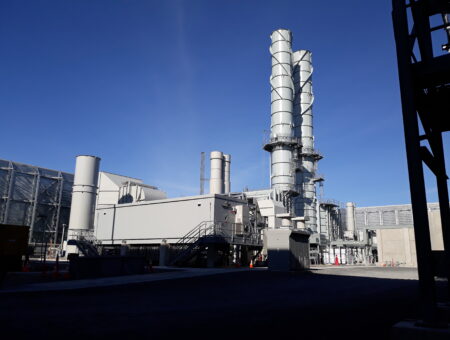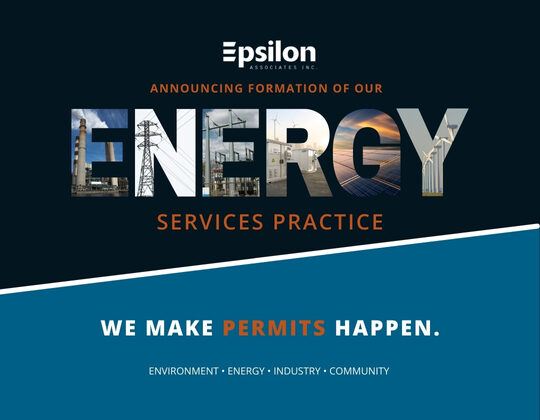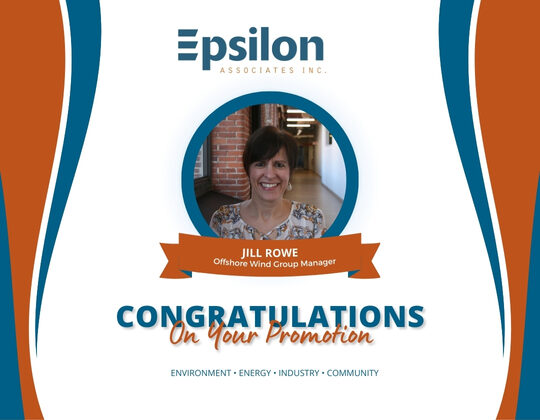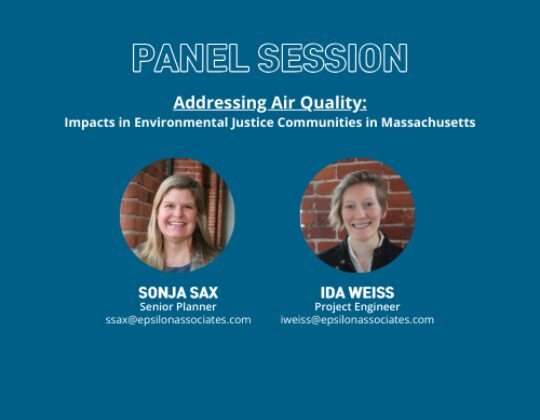Environmental Compliance
Our depth of talent enables Epsilon to assess a facility's compliance with federal, state, and local regulations by identifying gaps in existing procedures and providing specialized support to make sure a facility achieves and maintains long-term environmental compliance.
Environmental Compliance Services
General Compliance
- Multi-media environmental audits (air, water, chemical usage/storage, waste etc.)
- Development of environmental compliance management systems
- Air permitting determinations and applications
- Hazardous waste and waste oil management
- Noise monitoring and modeling
- Odor modeling
- Aboveground and Underground Storage Tanks (ASTs / USTs)
- Erosion and sediment control
- Wetlands permitting and delineation (i.e. Section 401, 404 and Wetlands Protection Act)
Regulatory Compliance
- Industry-specific federal air emissions standards (NESHAP / New Source Performance Standards (NSPS))
- Oil Spill Prevention, Control and Countermeasure (SPCC) Plans
- Stormwater Pollution Prevention Plans (SWPPP)
- Facility Response Plans (FRP)
- Air emissions inventory development and reporting (Source Registration, Greenhouse Gas (GHG))
- Federal “Tier 2” Hazardous Material Reporting and associated state-specific programs
- Toxic Use Reduction Reporting (TURA / TRI)
- Continuous Emissions Monitoring Systems (Part 60 / Part 75), including Electronic Data Reports (EDRs), QA/QC Plans, Monitoring Plans
Compliance Across Industries
Ensuring a facility is in compliance with federal, state, and local standards and regulations is critical to the success of a facility. Our environmental compliance support includes utilizing our diverse range of services to support a variety of industries and projects throughout the U.S. These include power generation facilities, hospitals, colleges and universities, industrial and manufacturing facilities, commercial, laboratory, office spaces, and municipal water treatment plants.
We stay up to date with the ever-changing regulations to always ensure our clients meet and maintain compliance with federal, state, and local regulations.
Continuous Support Across Projects
To ensure a facility or project remains in compliance, Epsilon provides ongoing oversight of operations. Our team can provide remote support or be a regular presence as an on-site environmental specialist. As part of this on-site presence, we provide assistance with air quality monitoring, water management, oil/chemical storage tanks, waste stream management, and other ongoing environmental aspects.
This support also includes regular site inspections and ongoing close communication with facility personnel and regulatory agents to ensure compliance with applicable permits and regulations.
Air Emissions Inventory & Air Permitting
Epsilon is highly adept at preparing air emissions inventories and identifying applicable air permitting requirements and/or exemptions for on-site processes. As part of this service, we identify federal emissions standards that may apply to projects and develop quantitative totals of actual and potential emissions from the facility. We prepare annual air emissions reports for states throughout the Northeast including Massachusetts, New Jersey, New York, Maine, and Rhode Island. We also prepare greenhouse gas emission reports and other ongoing air compliance submittals.
For facilities with CEM systems, Epsilon supports compliance with applicable standards under 40 CFR 60/40 CFR 75, including development and review of QA/QC Plans and Monitoring Plans, participation in CEM system configuration strategy planning, and ongoing review of CEM system data.
We conduct ambient air and meteorological monitoring in support of remediation projects, prepare ambient air quality monitoring plans, and conduct ambient air modeling and noise monitoring in support of newly proposed units and facility expansions.
Learn more about our related services!
Oil and Chemical Storage
Our team of air quality experts are able to review and assess a facility’s storage inventory to ensures a facility is meeting all its reporting obligations under Toxics Release Inventory (TRI), Emergency Planning and Community Right-to-Know Act (EPCRA) Tier 2, and other regulatory programs. We also confirm a facility's compliance status under applicable stormwater regulations.
Additionally, if your facility stores more than 1,320 gallons of oil on site in aboveground containers then you are subject to U.S. EPA's oil spill contingency regulations (40 CFR 112) and must maintain a valid SPCC Plan on site. We have developed countless Spill Prevention, Control, and Countermeasure (SPCC) Plans and Facility Response Plans (FRP) for facilities located throughout the country and are able to guide clients seamlessly through the process.




